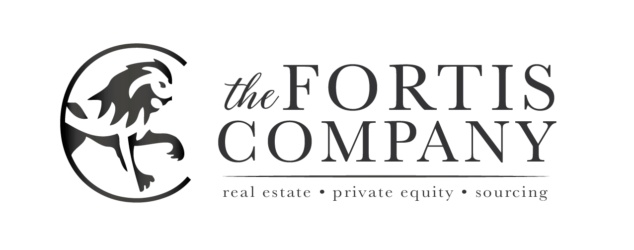What is Private Equity?

Equity usually is the ownership of assets in a public company, but when the word private equity comes, it becomes a capital that is not listed on a public exchange.
Private equity funds and private investors invest directly in private firms or engage in buyouts of publicly traded companies. Private equity is funded by institutional and individual investors. The funds can be used to support innovative technologies, extend working capital, make acquisitions, and reinforce and consolidate a balance sheet.
Revenue Model Of Private Equity Firms
Management fees are the major source of money-making for private equity companies. Private equity companies’ fee structures vary, but they commonly have management and performance fees. Certain PE companies impose a 2% yearly management fee on managed assets and want 20% of the proceeds from a company’s sales.
Forms of Private Equity
Now that it is understood that how private equity firms collect money, it is time to know in which forms they utilize the cash to make more money. These are called types of private equity funding.
Distressed funding
If you have listened to financial news over the years, you might have known that after the financial crisis in the year 2008, private equity firms started making headlines through distressed funding in the various underperforming business.
In distressed funding, the troubled businesses or companies are funded by private equity firms with the intention of boost their business by making beneficial changes to the operations, management and selling their assets to earn profit.
Often the companies that went bankrupt are taken over using distressed funding by private equity firms. Distressed funding is also called vulture financing.
Fund Of Funds
A fund of funds (FOF) is a pooled investment that invests in hedge funds, mutual funds, and it could be structured as an investment trust or a private equity fund.
The objective of the fund of funds (FOF) is to achieve wide diversification while minimizing risk. But due to the minimum risk, the expense ratios for FOF are often greater than the conventional mutual funds.
There are several types of FOFs, each of which follows a distinct investing strategy. FOFs often appeal to small investors looking for better exposure with fewer risks than investing directly in securities or even individual funds.
FOF could be fettered (restricted), which means it only invests in portfolios managed by a single investment firm, or it could be unfettered (unrestricted), meaning it also invests in external funds managed by other businesses’ managers. FOF is also known as a multi-manager investment.
Leveraged Buyouts
The most common form of equity funding is Leveraged Buyouts. In this, the private equity firm purchases the company intending to enhance its commercial and financial value and then further resells it for profit. The sale is made to an interested party or through an initial public offering (IPO).
To make the Leveraged Buyouts working process clearer to understand, we can say that it is done by the private equity firm when they find a possible acquisition target. Then the firm establishes a special purpose vehicle (SPV) to finance the operation of taking over. When turning around a company, the private equity firms also use different strategic techniques, ranging from reducing staff to changing whole management.
Firms often fund transactions using a combination of debt and equity. Debt finance can contribute up to 90% of total cash, which is handed to the acquired firm for tax benefits.
Real Estate Private Equity
Private equity real estate funds came to rise during the 1990s when property values were plummeting as a method to sweep up properties. It is a type of fund that is professionally managed to invest in real estate. Investing involves a significant sum of money and can be done by accredited or high-net-worth investors.
This type of investment is generally riskier and more expensive than other types of real estate investment funds but provides high returns. Also, investments in real estate PE demand a long-term commitment as well as a substantial upfront investment. The Investors have little flexibility and less liquidity because the capital commitment window is generally many years long.
Private equity firms invest in a wide range of real estate, so the approach to property ownership used by private equity real estate is quite diverse. Research conduct by Preqin claims that the real estate funds in private equity are anticipated to increase by 50% by 2023, reaching a market size of $1.2 trillion.
Venture Capital
The history of venture capital may be traced back to the nineteenth century. It has grown from a niche activity into a professional sector.
This is a form of funding that private investors offer to startups and small firms which have the potential to fully develop long-term. Funding in venture capital can be done at various phases of startups and small business development, although it is most commonly associated with early and seed round investments.
Well-off investors, investment banks, and other financial institutions are the most common sources of venture capital. Venture capital will generally take between 25% to 50% of a new company’s ownership, depending on the stage of the business, its potential, and the amount of money being invested, among other factors.
Private Equity vs. Venture Capital
It’s important to understand the difference between private equity and venture capital. Private equity refers to investments or ownership in private companies, also known as the “PE strategy” of investing. Venture capital investments are a form of PE (private equity) investments that tend to focus more on startups in the early stages.
Since venture capital is a form of private equity, there are a few distinctions that should be considered when comparing the two:
Private Equity
Private Equity (PE) firms often invest in mature businesses that fall into traditional industries.
Using capital committed form limited partners (LP’s), PE investors invest in promising companies – usually with majority stake (>50%).
When a PE firm sells one of its portfolio companies, returns are distributed among the other investors or LP’s. Investors normally receive 20% of the return while LP’s get 80%.
Venture Capital
Venture capital firms usually invest in more tech oriented startups.
Using committed capital, VC investors usually take a minority stake (<50%)in the companies they invest in.
Majority of these companies are not yet fully profitable or well established, so they are considered more of a risky investment.
The firm makes a profit if a company goes public, gets acquired, or by selling shares to other investors in the secondary market.
A private equity investment is great for businesses that are looking to grow and expand their operations. The Fortis Company brings a lot of knowledge and experience to the table that can improve a company’s value and revenue by leveraging its position in both local or international markets.
At The Fortis Company, our mission is to create long-term growth by utilizing our expertise and relationships to expand markets by improving operation practices. If you’re interested in learning more about private equity investing, contact us today!



